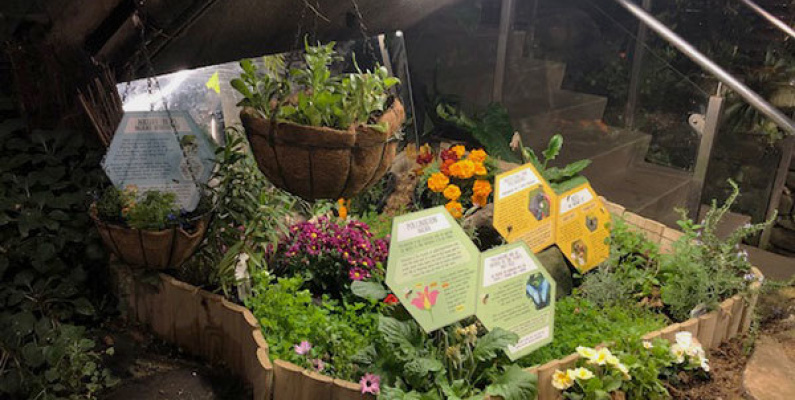
Bees are famous for all sorts of things: buzzing, stripes, stings and honey, but most importantly, they’re famously good pollinators. Pollinators are precious – they’re crucial for our environment and food production. Almost anything can be a pollinator – fundamentally it just involves moving pollen from one plant to another. Pollen grains are the male sex cells that plants produce, and pollination is how plants reproduce.
90% of flowering plants require animal input to complete reproduction, but there’s a payoff for those that help out. Flowers usually contain nectar, a wonderful source of sweet, sweet, carbohydrates.

Image: Bumblebees dislodge pollen that sticks to their furry bodies.
Like the rest of the world, New Zealand has bees to thank for the vast majority of pollination, but putting in the hard yards and receiving next to no credit are a whole variety of other creatures. Birds, bats and geckos are crucial pollinators of beautiful natives like pōhutukawa and harakeke. Insects like flies, moths, and beetles are the reason so many of our native plants have white flowers: there’s no point making fabulous flowers if the pollinators you’re trying to attract aren’t into colour. Plenty of our famous native flora have co-evolved with their own pollinator, like tūī with harakeke and kowhai flowers: the tūī’s beak curves perfectly to fit the curved flowers.

Image: Tūī feeding on harakeke nectar by Sid Mosdell. CC BY 2.0.
Our 28 native bee species are smaller, darker and less aggressive than introduced honey bees, but they’re also at something of a disadvantage. They’re almost all solitary species, living alone and having to compete with the highly efficient social system of honeybees. However, our native bees are critical for many of our iconic native plants, such as mānuka, kānuka, pōhutukawa and pirita (native mistletoe).
Your garden can be a crucial place for all kinds of pollinators to fuel up on their essential journey – but make sure you’re avoiding nasty substances like pesticides and insecticides. Many of these substances are designed to kill on contact, without distinguishing between helpful and harmful insects. Creating a garden with a variety of flowering plants offers year-round food and shelter, although letting your vegetable patch or herb garden go to seed is just as valuable as a source of pollen and nectar. Adding native plants like harakeke, hebes and kowhai will encourage native bees and birds to pay a visit to your garden.
To learn more about pollinators, pop into the bee garden in Tūhura's Tropical Forest, or visit our pollination website.
